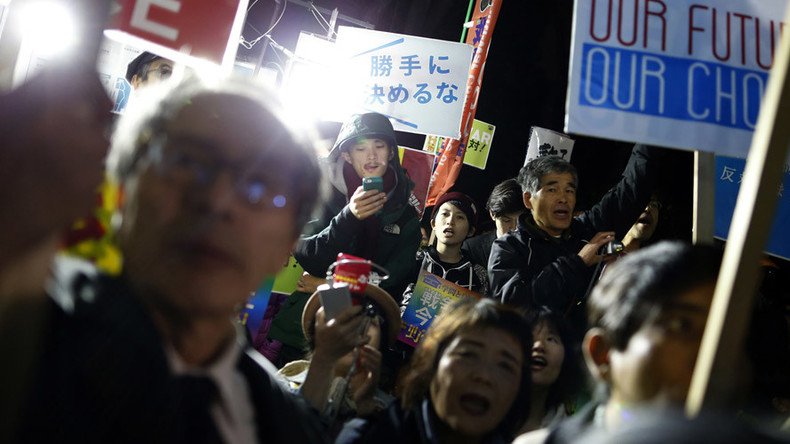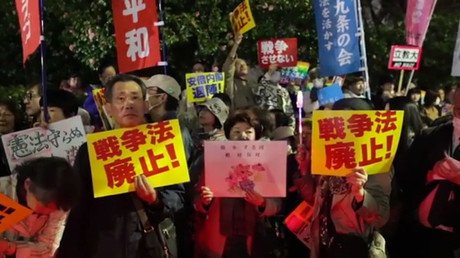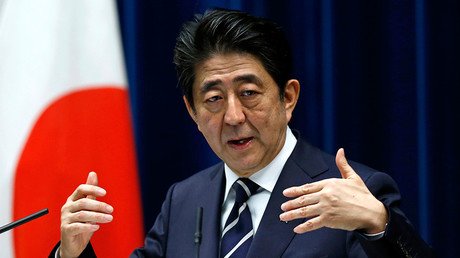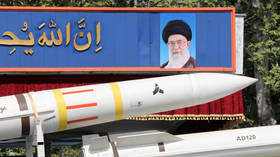700+ people sue Japanese govt for laws allowing use of military abroad

Hundreds of citizens in Japan have sued the government over the new laws which allow the country to provide military support to the US and other allies abroad. The plaintiffs claim that the laws violate their right to leave in peace.
Over 500 people in Tokyo and 200 in Fukushima Prefecture have filed a lawsuit against the government on Tuesday, Kyodo news agency reported.
The lawsuits are the first of several planned nationwide by a group of legal experts and other activists.
Some plaintiffs are seeking a compensation of 100,000 yen ($900), while others are hoping to prevent the deployment of the Self Defense Forces overseas with the help of the Constitution.
Those seeking monetary compensation said that the new laws have caused them to live in fear of being attacked and caught up in war affairs.
There have been several attempts earlier to file the suits but they resulted in failure as the cases got dismissed and did not make it to deliberation stage in the courts.
“This time the suits are in respect of specific harm, so they shouldn’t be able to be rejected,” Yozo Tamura, a lawyer and former Nagoya High Court judge, who filed Tokyo suits on behalf of the group told a press conference.
Plaintiff Yoko Shida, a law professor at Tokyo’s Musashino Art University, said she faced difficulty teaching law to students since the new legislation nearly contradicts the previous interpretations of the Constitution.
“Figuring out how to teach this interpretation of the Constitution, which is so different from those that preceded it, is causing confusion in the classroom,” Shida said as quoted by Kyodo news agency.
Other activists said that the new bill violates Article 9 of the Constitution, which says that Japan will not support wars as means of settling disputes and use its military to resolve international conflicts.
Survivors of World War II air raids on Japan and former inmates of labor camps in Siberia are said to be among the plaintiffs.
The group expects to file similar complaints in other courts across Japan.
Enacted last year, the new laws came into effect last month under the administration of Prime Minister Shinzo Abe, who argued that the legislation is absolutely essential as it “will help prevent wars” and strengthen Japan's ties with the US in particular.
“[We] can now help each other during emergency situations,” Abe said last month. “The bond of the alliance has been strengthened.”
The laws make it legal for Japan to provide military support to its allies it times when they are attacked even if Japan itself is not in danger.
Last month thousands of anti-war protesters gathered outside the Japanese parliament in Tokyo to protest against the new security bill holding signs reading “oust the Abe administration” and “we don't condone war.”
The legislation's passage comes as tensions continue to rise over territory in the South China Sea, where China has a growing military presence. Tokyo has expressed opposition to Beijing's construction of bases in disputed areas of the sea. In addition, Japan and China are also in a long-running row over ownership of the Senkaku Islands in the East China Sea.














